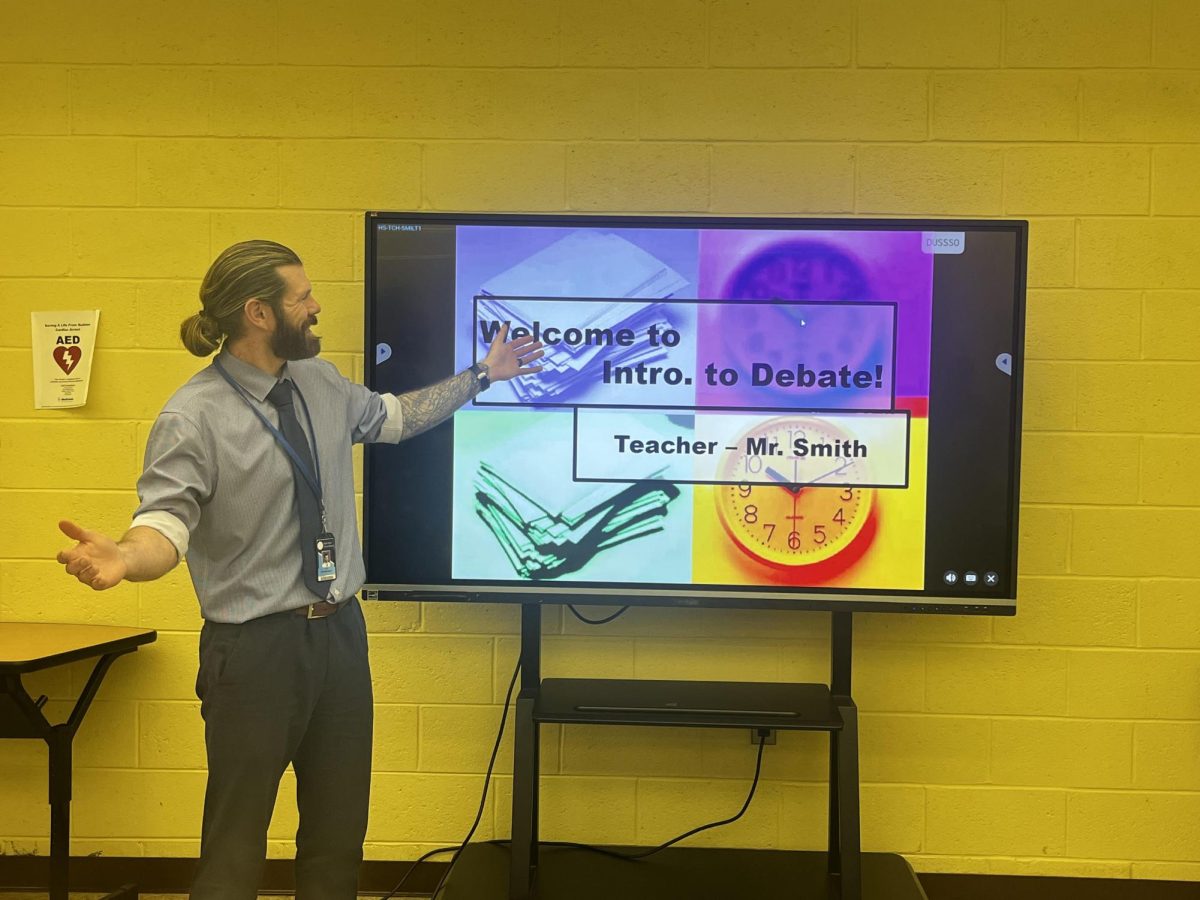Math, Science, English, and History. These are the four central subjects in the American education system.
Despite the significance these subjects are renowned for, not all of the necessary skills to succeed after education are fundamentally built from the STEM and history curricula at schools nationwide. However, North Penn High School offers a selection of courses that help build tangible skills- one of these is Mr. Richard Smith’s Debate class.
Debate is a semester course that covers the philosophical definition of beliefs, presenting an argument conveying a specific justified belief and arguing that your justified belief is correct.
“We start with the idea of what it means to know something, a justified true belief from a very philosophical standpoint and then we recognize that we are probably only debating justified belief,” Smith said.
The difference between the two types of beliefs, as Smith teaches, is that a justified true belief is defensible through evidence- and a factually true belief. A justified belief is defensible but not necessarily true.
In essence, a justified belief is an opinion, and a justified true belief is a fact. Hence, this is why people only ever debate justified beliefs. Realizing this profound truth is one of the foundational principles taught in this Debate class.
“The very first Debate students present in this course is typically at the end of the first marking period of the course, and that debate centers on ethics. We transition out of ethics and into preparing for debate two, which students have some choice over, and that debate is very research-based,” Smith explains.
The second debate is founded on statistics to justify one’s claims, and then the rule of logic is discussed in class, Modus Ponens to be specific. Another crucial topic discussed is the three types of persuasion: ethos, pathos, and logos.
Ethos is an argument that appeals to one’s credibility, pathos is an argument that appeals to one’s emotions, and logos is an argument that appeals to logic. Another foundational principle taught in this course is that it is integral to combine the three persuasive techniques in a debate.
“This course’s third and final debate is called a “SPAR” debate. The preparation and presentation of this debate happen within a singular class period, rendering this the most challenging of the three debates. That requires students to use all of the skills: research skills, argument building skills, extemporaneous speaking skills to successfully win,” the SPAR debate Smith said.
“With the skills, students build over the semester of Debate, confidence in speaking, argument building, [choosing your battles], is developed,” Smith stated.
I think the course provides a challenging environment that’s also a safe environment to be wrong, a safe environment to maybe make a mistake,” Smith said in closing.
I recommend this course to all students at North Penn because being able to convey a belief while at the same time being respectful and factually correct is such an important skill to have in this time period.
In my experience taking Debate the first semester of my junior year, the class was a space for me to develop my critical thinking and research skills while improving my presentation and persuasive writing. The level of challenge is perfectly balanced with the level of comfort in the class. Yes, it is a challenging environment, yet, the pressure in debates is manageable and leads to growth in all aspects of debating and presentation.



Willa Magland • Jan 30, 2024 at 7:58 am
I had no idea debate class was so complicated, especially when you started talking about justified arguments and justified true arguments. Very cool!